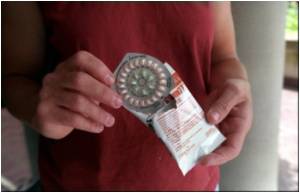
An IUD, sometimes known as a 'coil', is a plastic and copper device that sits in the womb preventing sperm from crossing it and making its lining less likely to accept a fertilised egg. In many countries IUDs are not widely used, perhaps because skilled professionals can only insert them.
Women often experience pain after insertion, but IUDs may be preferred long-term to other contraceptive methods because they last for five to ten years and have no hormonal effects. Hormonal contraceptives, by comparison, have been associated with side effects and require more frequent visits to the health care provider for injections or prescriptions.
The researchers reviewed data from two studies comparing IUDs and hormonal contraceptives, which together involved 967 women. The first included women attending family planning clinics in Brazil, Guatemala, Egypt and Vietnam and the second focused on HIV-positive women in Zambia.
In each study, women were randomly assigned to have an IUD inserted or to receive hormonal contraceptives. Hormonal contraceptives were given only by injection in the first study, but women were allowed to switch between pills and injections in the second.
Overall, fewer became pregnant in the groups receiving IUDs. Drop-out rates were higher for those using hormonal contraceptives in the first study and for those fitted with IUDs in the second study.
Advertisement
"This information will be useful for counselling women regarding their choice of contraception," Hofmeyr said.
Advertisement
Source-ANI














